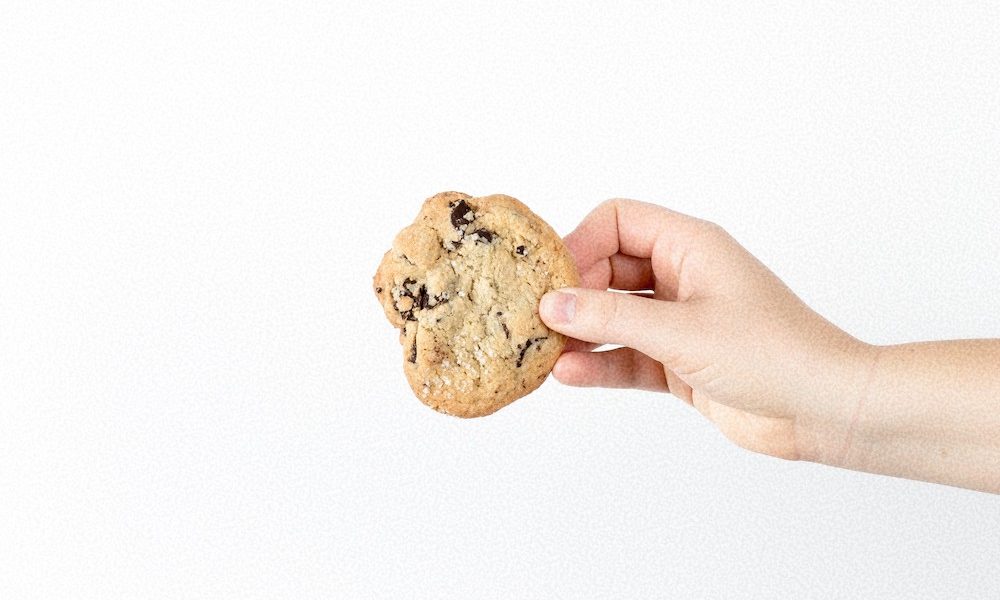Has sugar become your mortal enemy? If you find yourself fighting a sweet tooth, it’s time to take a closer look and see the real battle that’s going on.
BY: LEANNE RAY, MS, RDN
Many people talk about their struggle with having a sweet tooth. As in, sugar is addicting and impossible to resist. In many cases, people who identify as having an uncontrollable urge to eat sweets tend to have anxiety around them, but let’s unpack that a bit.
Why does this happen?
You’ve likely come across many questionable tidbits of advice around the internet that recommend everything from cayenne cleanses to going Whole30 to get your sugar intake under control. However, those tend to be extreme and quite unnecessary. Here are three reasons why you might crave sweets frequently (hint: none of them involve being addicted to sugar).
1. You are under-eating.
While each of us may deal with indulgent foods differently, most cases of sugar cravings are the product of under-eating. Pay closer attention: have you ever noticed that you feel seriously tempted by afternoon sweets on days when you don’t pack enough food to get you through the work day? When that happens, your body essentially needs fuel, but your biological hunger may be misinterpreted as a sweet tooth.
The same can be said for those evening snacks. If you are cutting way back on carbohydrates at dinner, you might be back in the kitchen searching for something sweet an hour or two later.
2. You don’t get enough sleep.
Another potential culprit of increased sugar cravings (or increased appetite in general) is a less-than-ideal sleep routine. Research strongly suggests that insufficient sleep results in decreased levels of leptin and increased levels ghrelin. These are two hormones that play a role in our hunger and satiety signals, and this particular combination results in a stimulated appetite, decreased satiety after a meal, and decreased energy expenditure.
3. You’re stuck in a “cheat day” mentality.
Oh the cheat day: this can be a tough habit to break if you are used to viewing food in terms of ‘good’ or ‘bad’. One question to ask yourself if you take this all-or-nothing type approach is:
Have you ever known someone who does a cleanse or super strict diet? If yes, what was their eating pattern like on the day after it ended?
Chances are, it involved seriously overdoing it on all of the foods that weren’t “allowed”. This isn’t a long-term strategy and can promote bingeing, guilt, and a vicious cycle of feeling out of control around food. In fact, the cheat day mentality sabotages your attempts of finding balance in your healthy behaviors, can be destructive to your relationship with food, and might even result in you constantly thinking about foods that are off limits (such as sweets). It’s more important to develop sustainable eating patterns rather than having a chaotic, extreme view of your food choices.
So now the question is, what action steps can you realistically take to move past these cravings?
First and foremost, choose meals and snacks that are satisfying, balanced and taste good to you. Trying to go low-calorie or only picking the “healthy” item can backfire and lead to cravings later if it’s not something you even want or like in the first place. Eating for satisfaction can also prevent large blood sugar spikes.
If your sleep routine could use some work, make a serious effort to get that figured out. If you make it a priority and still can’t seem to get a solid night of sleep, this is something that warrants a doctor’s visit because you may potentially have sleep apnea or another underlying condition that requires treatment.
And finally, consider using a mealtime habits journal for a week as a helpful way to track eating patterns and how certain meals/snacks make you feel. However, this isn’t about tracking your calories; rather, it’s more focused on your behaviors. Write down how hungry you were, where you were, who you were with, and what your mood was in relation with what you ate at a given time. This can be extremely helpful for identifying habits and issues that you may not even be aware of.
By taking the time to listen to your body, you’ll find that sugar detox to be unnecessary.
HEADER IMAGE: TIM WRIGHT
Leanne Ray, MS, RDN is a Denver-based Registered Dietitian empowering women to sustain healthy lifestyles that are practical and realistic. By helping others find happiness and joy through delicious foods that don’t involve guilt or stress, she shares how healthy eating can involve satisfaction instead of boring, low-calorie diets. Visit her site to read more from Leanne.

